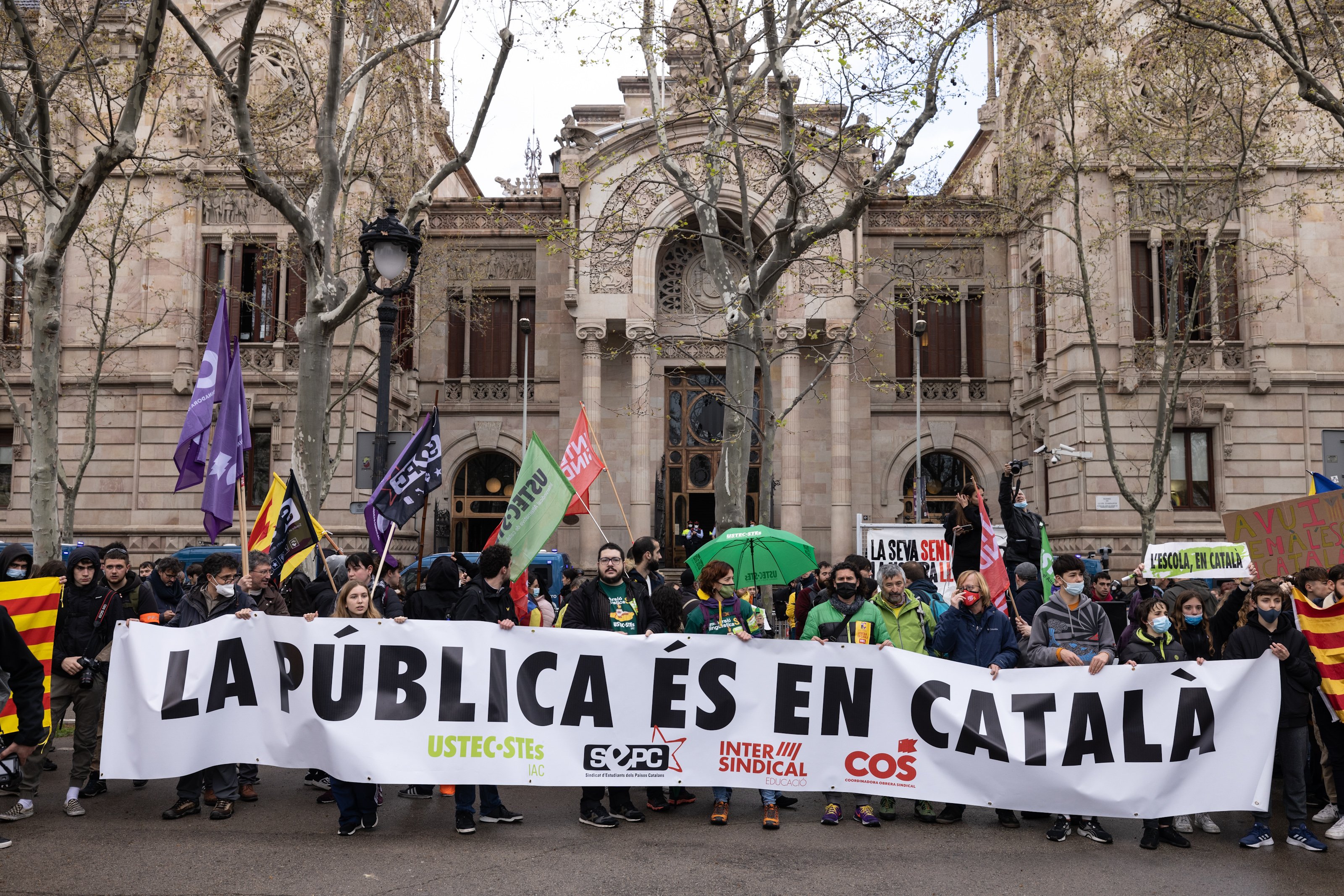A second case. The Catalan High Court (TSJC) has ordered that the Torrent d'en Melis primary school in Barcelona use Spanish as the teaching language for classes in one or more core subjects, apart from the time spent teaching the Spanish language itself, as demanded by the family of one student. The court requires the school to make this change within a month. This Wednesday, the pressure group Assembly for a Bilingual School (AEB) reported this new court resolution, dated January 10th, which comes in the wake of another (at the Sagrada Família Urgell primary school, also in Barcelona), with both rulings for the first time instructing specific schools to teach more Spanish without detailing the percentages of classroom language use. The aim is to dodge the Catalonia language laws passed last year, which, in turn, were intended to bypass the 25% Spanish quota of classroom time across the entire Catalan educational system, ruled by the same Catalan High Court. The court justifies the measure because it is for a specific student and not the entire educational system, over which it cannot order any action until the Constitutional Court resolves the appeals presented by Spanish unionist parties and the TSJC itself, asserting that the new Catalan language teaching regulations are unconstitutional because they do not specify clearly enough that Spanish is also a vehicular language in Catalan schools.
In the 16-page ruling, an administrative disputes chamber of the TSJC accepted the claim of a Barcelona family that their child should receive more classes in the Spanish language, in a procedure which was opened before the unconstitutionality appeal on the Catalan language law. The court indicated that initially the family had requested that the application of the 25% Spanish quota should be ordered, before modifying this request, and asking that, aside from the specific subject, their child be taught in Spanish in at least one other core non-linguistic curricular subject. The TSJC accepted this as an interim measure, and the AEB pressure group, which opposes the Catalan language immersion policy that has applied in Catalonia for 30 years, has published a tweet describing the new court ruling as "magnificent news".
The court's reasoning
In the resolution, the court insisted that the interim measure requested was not to be imposed on the entire education system of Catalonia in general, but for the child of one family, and that is why it was able to respond to it. It pointed out that "what is really decisive is the possibility of legally guaranteeing the student a minimum use of Spanish in their teaching at a specific school", and in this case, after examining the school's curriculum, it maintained that the use of Spanish is insufficient and thus imposed the order for more Spanish.
The court maintained that the primary school class of the plaintiff's child "follows the so-called immersion system, and the presence of the Spanish language, apart from in the subject of Spanish language and literature, can be described as residual", and that is why it found it appropriate to approve the order for more Spanish to be taught. The Catalan education department opposed the move, citing the new educational regulations, but the TSJC responded that "constitutional doctrine and legislation" stipulates that Spanish must be a vehicular language. Thus, it is confirmed that the TSJC will order more Spanish in other Catalan school centers, as long as the request is made individually.

